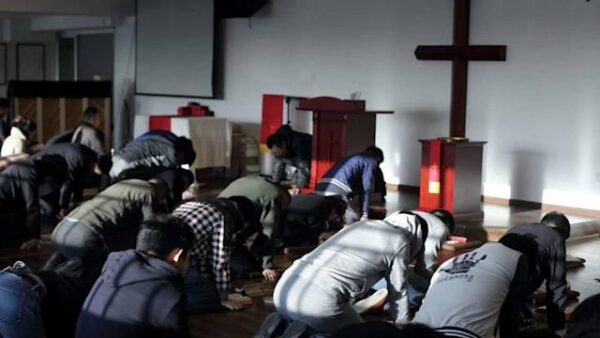The authorities in Henan province are rolling out an app for believers to register before attending religious services. The information is reported by the human rights organization ChinaAid on 6 March.
The Henan Religious and Ethnic Affairs Commission is developing the Smart Religion app, in which people are required to make reservations before attending church services. , mosques, or Buddhist temples.
To do this, the person must complete a form that requests name, phone numbers and identification, permanent residence, occupation and date of birth before being able to make a reservation.
Those allowed to enter a place of worship must also have their temperatures taken, suggesting that the app may be somehow related to the Covid-19 restrictions.
Henan, located in east-central China, has one of the largest Christian populations in the country – about 6% – according to a 2012 government survey. The communist regime is officially secular, and the same study indicates that only 13% of the 98 million inhabitants of this province belong to organized religion.
Technically the Chinese government recognizes Catholicism as one of the country’s five religions, but there is an underground Catholic Church, which is persecuted and loyal to Rome.
Government-sanctioned Catholic churches, on the other hand, have comparatively more freedom of worship but face other challenges, such as government pressure to censor parts of Catholic teaching and include Chinese nationalism and love for the Communist Party in preaching.
ChinaAid reported concerns that older, less tech-savvy people might not be able to register for religious services, but officials said staff would help them register.
However, for ChinaAid the development and launch of the app are part of the communist government’s efforts to “strictly manage religion comprehensively,” in part by collecting data on believers.
But the group also expressed concern that this added barrier would turn people away from religious practice.
“These management measures did not arise with the intention of protecting the religious rights of religious people, but are means to achieve political purposes,” he said.
China Aid cited information from China’s Henan Daily, which on February 24 “reported that Zhang Leiming, a member of the Standing Committee of the Henan Provincial Party Committee and head of the United Front Work Department, went to the Provincial Ethnic and Religious Committee to investigate and pointed out that it is necessary to strictly manage religion comprehensively, unite and guide the majority of religious believers to follow the Chinese Communist Party without hesitation.”



